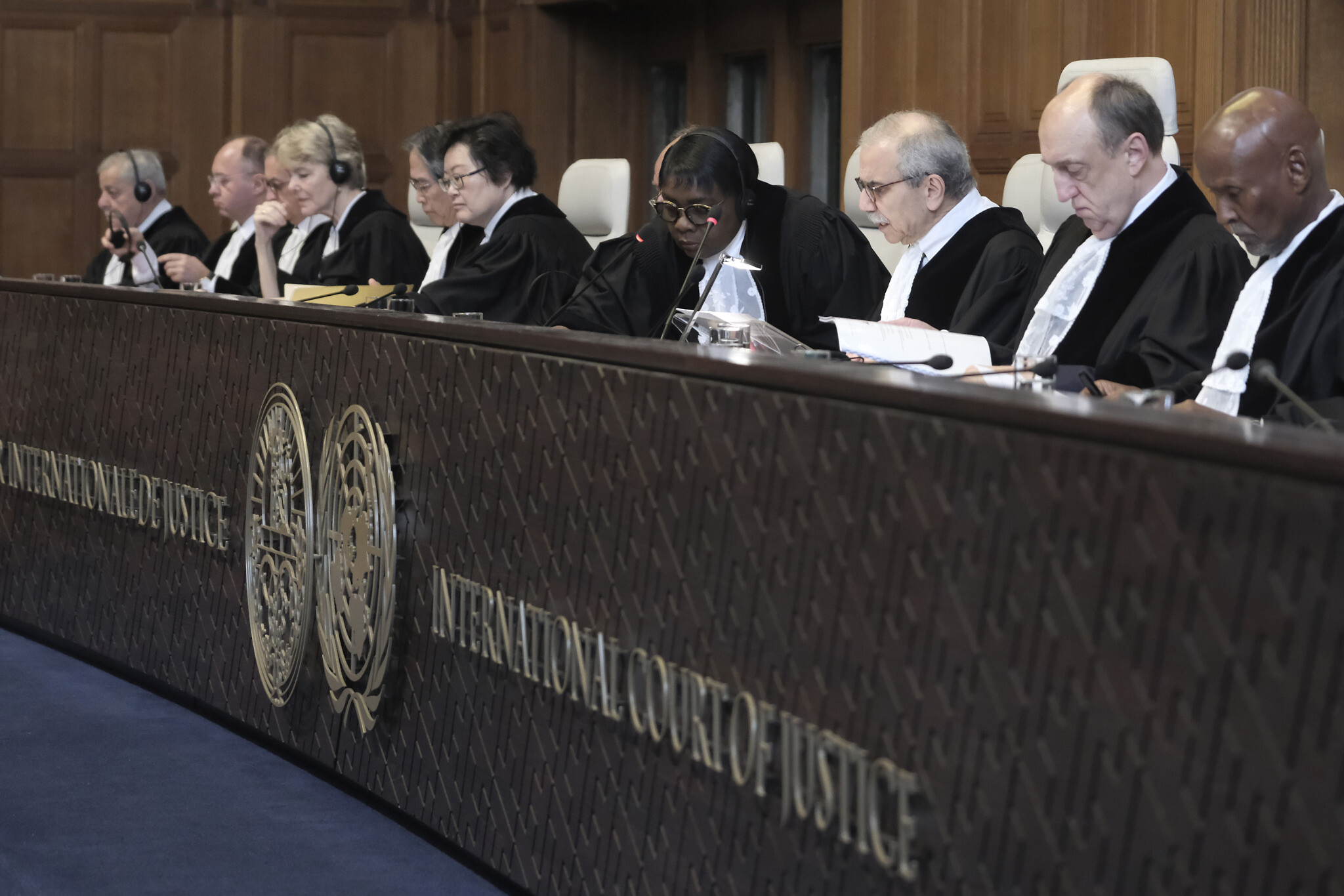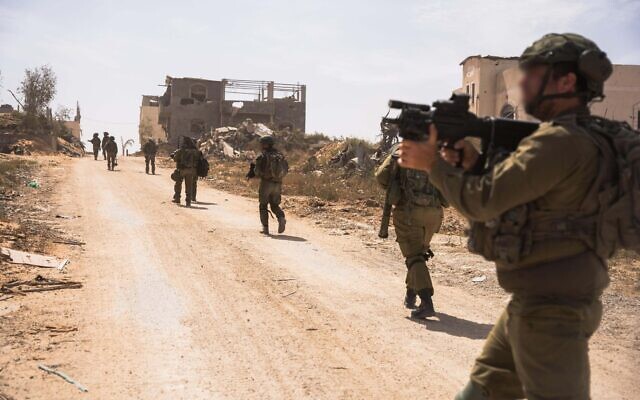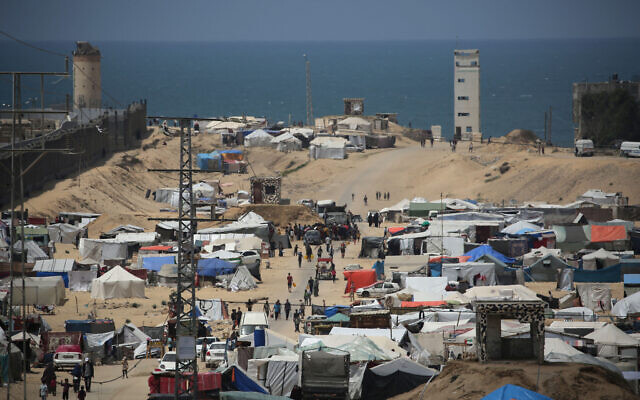



THE HAGUE, Netherlands — The United Nations’ top court will rule Tuesday on charges by Nicaragua that Germany is breaching the 1948 Genocide Convention by supplying arms to Israel for the Gaza war against Hamas.
Nicaragua has hauled Germany before the International Court of Justice (ICJ) to demand that judges impose emergency measures to stop Berlin from providing Israel with weapons and other assistance.
According to unverified figures from Gaza, over 34,000 people have been killed in the war that began when the Palestinian terror group Hamas launched a massive attack on Israel in which some 1,200 people were killed and 253 taken hostage.
The ICJ in The Hague is scheduled to issue an order at 4 p.m. Israel time.
Nicaragua targeted Germany rather than Israel’s main ally, the United States, because Washington did not recognize the ICJ’s jurisdiction in the case, Managua’s lawyers have said.
It claims Israel is in breach of the 1948 Genocide Convention.
Top lawyers from the two countries clashed earlier this month at the court, with Nicaragua saying Germany was “pathetic” to be providing both weapons to Israel and aid to Gazans.
Berlin retorted that Israel’s security was at the “core” of its foreign policy and argued that Nicaragua had “grossly distorted” Germany’s supply of military aid to Israel.
“Germany only supplies arms based on a meticulous scrutiny that far exceeds the demands of international law,” said Tania von Uslar-Gleichen, a German representative to the ICJ.
Those supplies are “subject to a continuous evaluation of the situation on the ground,” she added.
“The moment we look closely, Nicaragua’s accusations fall apart,” Christian Tams, another representative for Germany, told the court.
Nicaragua requested five emergency measures, including that Germany “immediately suspend its aid to Israel, in particular its military assistance including military equipment.”
The war began on October 7 with the devastating Hamas cross-border attack.
Israel vowed to destroy Hamas, topple the terror group’s regime in Gaza, and free the hostages.
The Hamas-run health ministry in Gaza says that more than 34,000 Palestinians have been killed in the Strip, but the number cannot be independently verified and is believed to include both Hamas fighters and civilians, some of whom were killed as a consequence of the terror group’s own rocket misfires.
The Israel Defense Forces says it has killed over 13,000 gunmen in Gaza, in addition to some 1,000 terrorists who were killed inside Israel on and immediately following October 7. The army also says 263 soldiers have been killed since the beginning of the ground invasion.
Israel blames the civilian death toll on Hamas because its members fight from dense residential areas in a way it says amounts to using civilians as human shields.
Germany has for decades been a staunch supporter of Israel.
Berlin, however, has gradually shifted its tone as civilian casualties in Gaza have soared, becoming increasingly critical of the humanitarian situation in Gaza and speaking out against a ground offensive in Rafah.
Israel has vowed to launch an operation in the southern Gaza city that is a last stronghold of Hamas, but also has seen Rafah’s population and the surrounding region swell to over a million people as Gazans fled fighting in other areas of the coastal enclave. The US has also pressured Israel over its plans for Rafah and the protection of noncombatants.
Cases relating to the Gaza war brought before the ICJ are closely followed.
In other legal proceedings, South Africa has accused Israel — which, like the US, is not a member of the court — of committing genocide in the Gaza Strip.
Israel categorically denies the South African accusations, which include responsibility for “starvation.”
In that case, the court called on Israel to do everything in its power to prevent genocide and recently ordered the country to “ensure urgent humanitarian assistance” in Gaza without delay.
Even though ICJ decisions are binding, the court has no mechanism to enforce them.



